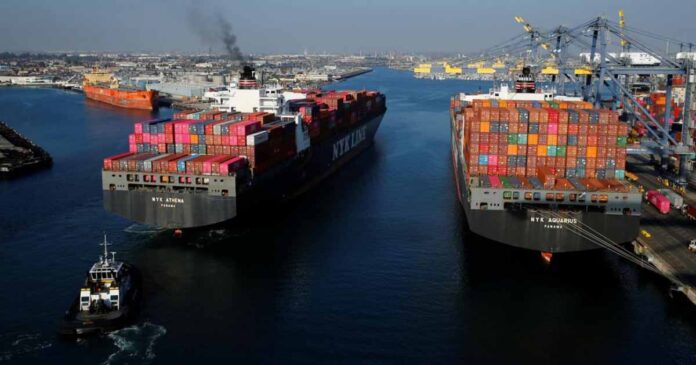ISLAMABAD: Pakistan has started evaluating trade facilities with the United Kingdom (UK), as the foreign country has announced the launch of the Developing Countries Trading Scheme (DCTS) effective from early next year, replacing its Generalized Scheme of Preferences (GSP) scheme.
The DCTS applies to 65 countries including Pakistan, offering lower tariffs and simpler rules of origin requirements for exporting to the UK.
According to sources, soon after the announcement of the new scheme, Pakistan’s Ministry of Commerce has started analyzing duty concessions and facilities under the new system DCTS as Islamabad has been beneficiary of the enhanced framework of the GSP scheme of the UK after Brexit.
The officials concerned would communicate the same with traders/exporters of the country to avail maximum facilities under the new scheme.
As per the documents, those countries categorized under “Enhanced Framework/Preferences” include Sri Lanka, Bolivia, Cape Verde, Kyrgyzstan, Mongolia, Pakistan, Philippines and Uzbekistan. The other three categories are Comprehensive preferences (with Bangladesh, Bhutan, Cambodia, Myanmar, Nepal among recipients), Standard preferences (India, Indonesia among others) and Economic Partnership Agreement.
The UK Government is also lowering or removing tariffs on an additional 156 products in DCTS Enhanced Preferences. The result of this change is that more than 85% of eligible lines now benefit from zero tariffs in DCTS Enhanced Preferences, covering trade worth around £ 2 billion.
The DCTS will come into effect in early 2023. The DCTS aims to support sustainable growth in developing countries through a more generous unilateral offer.
The DCTS applies to countries that currently benefit under the UK’s Generalised Scheme of Preferences (GSP). The GSP includes 47 countries in the GSP Least Developed Country (LDC) Framework and 18 additional countries or territories classified by the World Bank as low income (LIC) and lower-middle income (LMIC). It does not apply to countries classified by the World Bank as upper-middle income for 3 consecutive years, or to LICs and LMICs with a free trade agreement (FTA) with the UK.
Countries will lose DCTS Enhanced Preferences and move to DCTS Standard Preferences when their economies have developed enough to no longer be classified as economically vulnerable. The economic vulnerability assessment is revised in the DCTS, by suspending the criteria on export competitiveness and only applying the existing criteria on export diversification.
On Tuesday, the UK’s International Trade Secretary, The Rt Hon Anne-Marie Trevelyan MP, launched the DCTS, providing tariff reductions and simpler terms of trade to 65 countries, including Pakistan, which will be implemented early next year.
Under the DCTS, Pakistan will continue to benefit from duty-free exports to the UK. In addition, the DCTS will remove tariffs on over 156 additional products. It will also simplify some seasonal tariffs, meaning additional and simpler access for Pakistan’s exports to the UK.
Total trade (goods and services) between the UK and Pakistan each year currently stands £2.9bn. In total, 94% of goods exported from Pakistan will be eligible for duty-free access to the UK. Pakistan will save £120m in tariffs on exports to the UK under the scheme.
“Pakistan, and other DCTS countries, will also be supported to participate in the international trading system through the UK’s Trade Center of Excellence, which will provide specialist support so that they can fully participate in the global trading system. This will include support on meeting trade standards, and participating in multilateral trade for a,” UK’s Trade Director for Pakistan and British Deputy High Commissioner, Karachi, Sarah Mooney, said in a statement:
A prosperous UK-Pakistan relationship matters. As we celebrate 75 years of our bilateral relations, we want to further cement our strong ties and double bilateral trade by 2025. The newly announced DCTS Scheme will be pivotal in achieving this.




